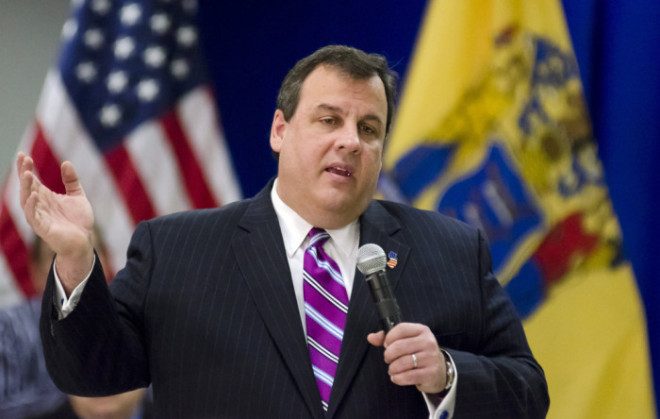
Governor Chris Christie is trying to avoid raising New Jersey’s gas tax as he preps for a potential run in the 2016 presidential campaign.
At the state Senate Budget and Appropriations Committee meeting this week, state treasurer Andrew Sidaman-Eristoff said the administration will not only spend $175 million less than in fiscal year 2015, but they are also looking to patch up the Transportation Trust Fund (TTF) with a $241.5 million loan repayment from NJ Transit, among other things, in order to avoid raising the gas tax.
According to NJ.com, Sidaman-Eristoff says NJ Transit receives federal grant money on a different budget cycle than the state’s, occasionally leaving the agency short on cash. The TTF has stepped in with short-term loans, he says, to smooth out NJ Transit’s cash flow problems.
The TTF, established in 1984 under Governor Tom Kean, was conceived as a pay-as-you-go revenue source for capital projects, including bridge and road upkeep and rehabilitation in order to keep the state’s transportation infrastructure functioning.
However, the TTF has found itself in debt to the tune of $14 billion because its major source of funding—the gas tax—has not been raised since 1988, as reported in New Jersey Monthly’s January cover story: “Why Jersey Roads Suck.”
The current rate of 10.5 cents per gallon has been in place since 1988 and is the second lowest in the country, trailing only Alaska. In New York, the gas tax is 50.5 cents per gallon; Pennsylvania’s rate is 41.8 cents per gallon.
Each year, the gas tax brings in approximately $510 million, however, this is not nearly enough to raise the $1.6 billion needed to be matched by federal funds in order to support the capital road and bridge improvements outlined by the Department of Transportation every year.
Due to this lack of funding, New Jersey’s infrastructure has suffered.
According to a report by Forward New Jersey, a coalition of New Jersey businesses, 624 of the state’s 6,566 bridges (9.5 percent) are structurally deficient. Another 1,710 (26 percent) are functionally obsolete. The American Society for Civil Engineers found that 66 percent of New Jersey’s roads are in poor condition.
Against this backdrop, some lawmakers have called for an increase in the gas tax, particularly since gas prices have dramatically fallen over the past several months, to supplement the fund.
However, the governor continues to oppose any increase in the tax.
A handful of polls conducted over the past year have shown that New Jerseyans don’t support a raise either—although support for a hike has been steadily increasing.
The most recent Rutgers-Eagleton poll shows that 54 percent of residents continue opposed an increase while 42 show support—compared to 38 percent support shown last April.




